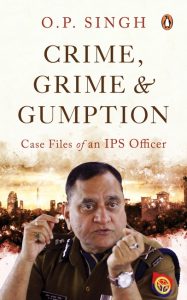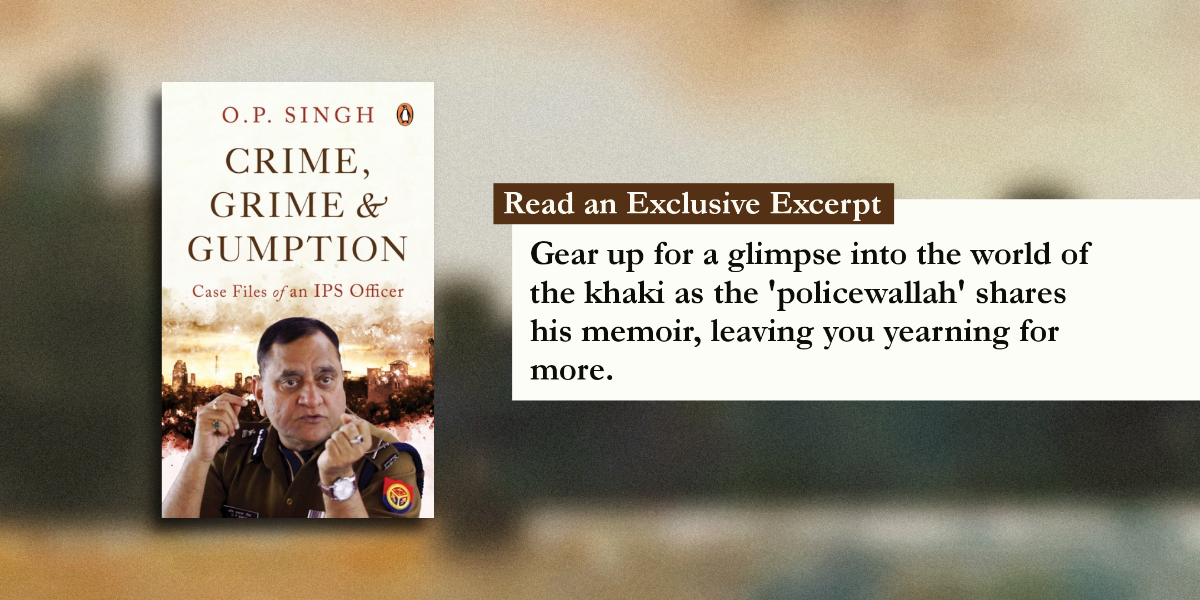Ever wondered what it takes to transform from a student of theory to a leader in action? From the lecture halls of Delhi University to cracking the civil services exam, explore the milestones that define O.P.Singh’s inspiring ascent. Are you ready to be inspired by the story of ambition, dedication, and the pursuit of excellence?
Read on for a glimpse into the extraordinary!

***
The academic scene at the DU campus was competitive. I mean, you could really feel it, the sense and the urge to learn, to grow big. I found my years at DU intellectually most satisfying. I cannot escape the mention of some of my professors with whom I had the privilege to cover a distance. Randhir Singh, the master of political theory and thought, was an exceptional professor. His oratory skills had the audience eating out of his hands and he was quite popular among the students too. Prof. Manoranjan Mohanty, another exceptional mind, handled comparative politics. International relations was the domain of Prof. Mahendra Kumar, while Prof. Susheela Kaushik talked about Indian politics. Last but not the least, Prof. M.P. Singh and Prof. R.B. Jain professed political theory and public administration, respectively. It was one august line-up and I immersed myself in the holy waters of Delhi academics.
Besides looking forward to the edifying lectures of eminent faculty members, I used to have after-dinner talks with Shekhar Singh, my senior in academics and also a lecturer at Kirori Mal College, till midnight. We would often discuss threadbare Western political thought, Indian political thought of leaders such as B.R. Ambedkar and M.N. Roy, and politics of representation and participation along with discussions on changing international political order. Shekhar Singh joined the IAS and retired as chief secretary of Telangana. The Central Library offered a refuge of a different kind. Innumerable boys and girls, research scholars and professors from different departments would converge and recreate a sangam, a confluence of varied interests. I, too, became part of the furniture in the library, and I could smell the aspiration for the civil services around me. I was convinced I had come to the right place. My preparation for the exam of my lifetime began in earnest.
I visited my mother and Gaya during the long breaks, especially during the summers. The train journey across the Gangetic plain held an unparalleled charm. In the company of friends and friends of friends, we travelled in a spirit of camaraderie. Second-class journey, reservation or no reservation, crowded platforms— nothing dissuaded our spirits of adventure. I still remember Gaya Station and its crazy, cacophonous milieu of coolies in red shirts, with their golden brassards in place, the shouting brigade of vendors and the lone shout of ‘chai-chai’ resounding even after one had left the premises of the rail station.
After my master’s with distinguished honours, I rested my eyes and hope on my MPhil programme in political science. My dream of clearing the civil services exam was still on. Deshbandhu College of Delhi University offered me a lectureship and I grabbed the opportunity. Thus began a small yet significant start to my career. Though my heart lay elsewhere, I was lucky to keep myself and my mind on course. The year was 1982. The urge and the thirst to do something big was alive and I knew it was just a matter of time.
Dates hold a strange fascination for me, and 19 May 1983 became another such landmark. No, it wasn’t the day of the results of the UPSC examination but the day I appeared for the selection interview. As I stepped out of the cool confines of the imposing UPSC building and on to Shahjahan Road, I exuded a certain confidence, the confidence of having arrived. The forty-five-minute interview had been a breeze. I was grilled by the chairperson of the interview board, R.O. Dhan. She was possibly the vice chancellor of some university and had real pointed questions in her armoury. Former IPS officer John Lobo, another board member, carried the legacy of having investigated the famous homicide case of Admiral K.M. Nanavati. From the United Nations to the Chauri Chaura incident, the interviewers were thorough in their approach.
The UPSC interview was held in the month of May. The news of my selection came through in June. Life has its own way of springing surprises. At times I think back on my journey to academic success, a candidate who cracked one of the toughest examinations in the country, in fact in the world. There is always a trigger that catapults one from a modest follower to a fiery leader. Fifth standard had been mine. I had started believing in myself and taking myself more seriously when I stood first then. This precisely was a moment when I reinvented myself afresh and a sense of competition was instilled in my young mind.
My training and induction were fixed to commence in the first week of December. For me, the ultimate had happened. God had blessed me with his indulgent embrace. My mother was with me in the momentous occasion, so were my sisters and brother Shree Prakash. Babuji was missing in the picture and that stung me.
And then, out of nowhere, the love of my life tiptoed into the family and straight to my heart.
***
Get your copy of Crime, Grime, and Gumption by O.P. Singh wherever books are sold.







